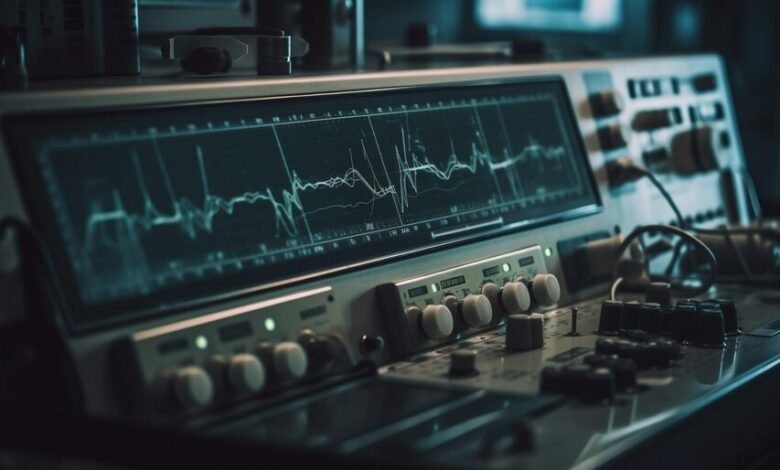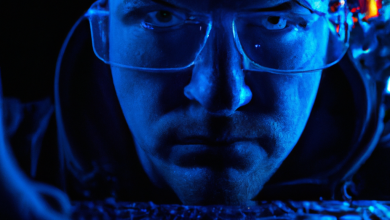The Listening Power: Leveraging Audio Forensic Services in Criminal and Civil Cases
Leveraging Audio Forensic Services in Criminal and Civil Cases

In today’s rapidly evolving digital landscape, audio forensic services play a pivotal role in legal investigations and proceedings. Leveraging cutting-edge technology and specialized expertise, audio forensics enables the analysis, enhancement, and authentication of audio recordings, contributing crucial evidence in both criminal and civil cases.
Comprehending the importance of audio forensic services is critical to appreciating their influence on contemporary legal procedures, guaranteeing fairness, correctness, and transparency in the legal system. The complex field of audio forensics is explored in this article, along with its methods, applications, and crucial role in the legal system’s quest for justice and truth.
The Importance of Audio Forensics
Audio forensics plays a pivotal role in analyzing and interpreting audio recordings in various contexts, ranging from criminal investigations to civil litigation and beyond. Its importance lies in its ability to authenticate audio evidence, clarify dialogue, and uncover crucial details that may be pivotal in legal proceedings. By employing advanced techniques and technologies, audio forensic experts would enhance audio quality, identify voice patterns, and detect alterations or tampering, thereby ensuring the integrity and reliability of the evidence presented. This meticulous analysis not only aids law enforcement agencies and legal professionals in uncovering the truth but also contributes to upholding justice and ensuring fair outcomes in legal matters.
All things considered, audio forensics is an indispensable instrument for revealing latent facts, settling conflicts, and maintaining the standards of openness and responsibility in the legal system.
Applications in Criminal Cases
In criminal cases, audio forensic services serve as indispensable tools in unraveling the truth and establishing key evidence. Voice identification techniques enable investigators to uncover suspects by matching voices captured in recordings with known individuals, aiding in the establishment of identities crucial for building cases.
Moreover, authentication of recordings is pivotal in verifying the integrity of audio evidence presented during prosecution. By employing sophisticated analysis methods, audio forensic experts would discern alterations, manipulations, or tampering in recordings, ensuring that only authentic evidence is admissible in court.
The utilization of audio forensics in criminal investigations not only enhances the accuracy of legal proceedings but also strengthens the foundations of justice by upholding the integrity and reliability of audio evidence.
Utilization in Civil Litigation
In civil litigation, audio forensic services play a vital role in facilitating dispute resolution and providing credible evidence in legal proceedings. One significant application is in clarifying disputed conversations and testimonies, where audio recordings may be the primary evidence. Audio forensic experts meticulously analyze these recordings to determine authenticity, detect alterations, and enhance clarity, thereby shedding light on crucial details that could sway the outcome of the case.
Moreover, audio forensic professionals often provide expert testimony in civil proceedings, offering their insights and analyses to assist judges and juries in understanding complex audio evidence. Their expertise adds credibility to the evidence presented, helping to establish facts, clarify discrepancies, and ultimately guide the resolution of disputes.
By leveraging audio forensic services in civil litigation, parties involved would navigate legal complexities with greater clarity and confidence, ensuring that disputes are resolved fairly and equitably. The utilization of audio forensics not only promotes transparency and integrity within the legal system but also contributes to the pursuit of justice in civil matters.
Challenges and Limitations
Ambient Noise: Addressing background noise and environmental factors that would affect audio clarity.
Technological Constraints: Dealing with limitations in audio recording quality and equipment capabilities.
Interpretation Discrepancies: Managing subjective interpretations and potential biases in audio analysis.
Despite advancements in audio forensic techniques, challenges such as these underscore the need for careful consideration and expert judgment when analyzing audio evidence. Recognizing these limitations allows forensic experts to approach their analyses with precision and integrity, ensuring that conclusions drawn from audio evidence are accurate and reliable.
Conclusion
In conclusion, audio forensic services play a pivotal role in both criminal and civil contexts, offering invaluable insights into audio evidence. From aiding criminal investigations to resolving civil disputes, the power of audio analysis cannot be overstated.
Despite inherent challenges, the meticulous examination of audio recordings enables the pursuit of truth and justice in legal proceedings. As technology evolves and methodologies advance, the impact of audio forensics continues to shape the landscape of modern law enforcement and judicial practices.





